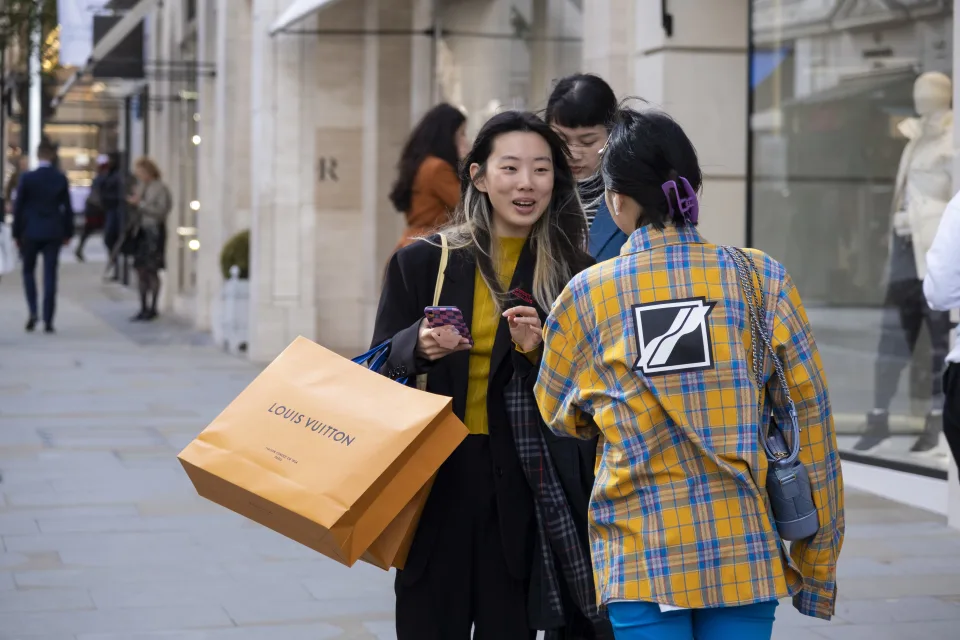
The luxury consumer is evolving, forcing brands to keep up with changing buying habits.
A 2024 report by Bain & Company found that Gen Z consumers, or those born between 1997 and 2012, will account for nearly a third of luxury purchases by 2030, while millennials, born from 1981 to 1996, will make over half of luxury purchases.
Gen Z, in particular, is projected to become the largest and wealthiest generation, according to Piper Sandler, and could drive luxury sales higher across the retail, travel, and technology industries.
“Gen Z appears to be the fastest emerging new generation in luxury because of their current entry into adulthood,” Jason Dorsey, Gen Z researcher and author of “Zconomy: How Gen Z Will Change the Future of Business,” told Yahoo Finance in an email. “While their spending power is still less than other generations it will increase over time. The sooner brands connect with them the greater the opportunity to grow with the generation.”
A push-pull in luxury
The changing demographics of the luxury buyer could pose new challenges to luxury brands.
Morning Consult retail and e-commerce analyst Claire Tassin surveyed 2,203 US adults to better understand luxury consumer habits and found that the current luxury consumer is a “mercurial buyer” with an appetite for “beautifully crafted products, first-class travel experiences, and meals with rare ingredients.”
Among all US adults, quality was the most important attribute of a luxury shopping experience, the survey found. Tassin pointed out that “consumers don’t always think luxury purchases are worth the cost, but when they are, quality is the defining factor.”
She told Yahoo Finance that she’s concerned about brands that only trade on their status and mythology, noting that Gen Z consumers are not as brand loyal as older consumers.
Dorsey explained that Gen Z consumers may still be loyal to brands they view as part of their identity but not others, especially as they look to keep up with trends. According to McKinsey researchers, among those surveyed in the US and UK, more than 50% of Gen Zers would switch their favorite brand if they found another that would be cheaper or higher quality.
“You can see this loyalty from Lululemon to TikTok and the fickleness through quick-hit-and-forget brands that had a moment but the moment ended,” Dorsey wrote.
While younger consumers place an emphasis on authenticity in their luxury purchases and experiences, aspirational buying still plays a key role in driving value.
“There’s an appetite for luxury from people who are not in that ultra-elite 1%,” Tassin said. “So balancing serving that sort of classical luxury shopper with the more aspirational luxury shopper, especially when you pull [Gen Z] into the equation, is something that I think is really hard for those brands right now.”
“Whether you’re able to stay on trend and still stay classic and to your roots, … it’s a constant push-pull, and I think it’s hard for any brand,” Tassin added. “It’s particularly hard for luxury houses.”
With overall luxury spending expected to grow from an estimated 1.5 trillion euros ($1.67 trillion) today to 2.5 trillion euros ($2.79 trillion) by 2030, according to Bain & Company, brands have good reason to get this balance right.
“The key in our research is for brands to not take Gen Z for granted or make assumptions that because they’re younger adults, they are less informed, but instead value their diversity, inclusivity, sources of information, trusted trend resources, and desire to be connected,” Dorsey said.





























